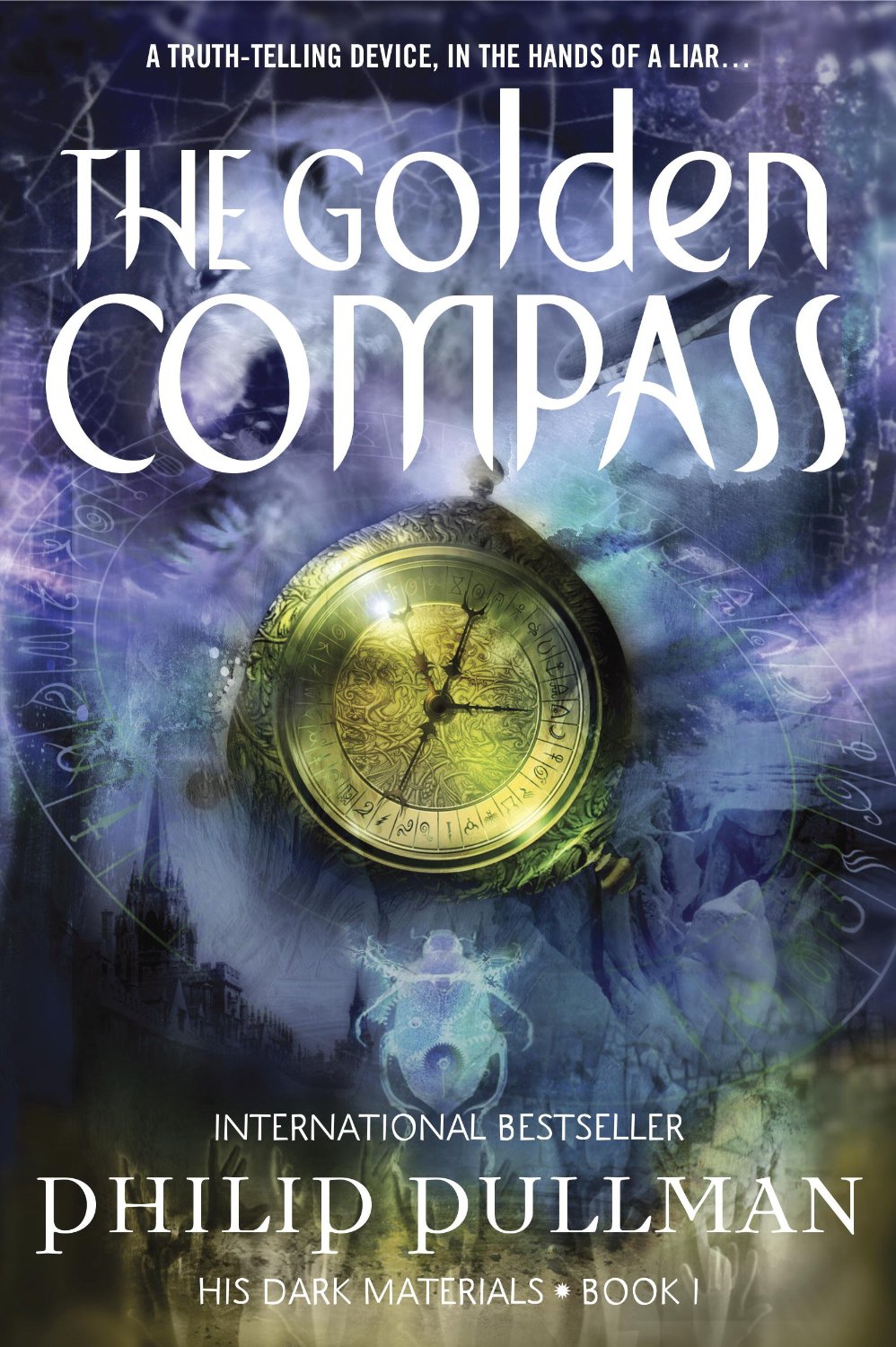 The Golden Compass
The Golden Compassby Philip Pullman
reviewed by Sophie Johnson
The Golden Compass by Philip Pullman is a fantasy novel that begins with the image of magic “dust” and a parallel universe. Lyra is a young girl who lives in Oxford college surrounded by very intelligent older people. In the novel each person is connected to a “daemon” which is an animal that is apart of them. This animal shapeshifts into different animals whenever it wants. But when a child becomes an adult, they have a fixed daemon. Lyra’s daemon name is Pantalaimon and they are obviously very close friends. One day Lyra and Pan (Pantalaimon) sneak into a special room in the college and listen in on a meeting with Lyra’s uncle, Lord Asriel, the Master of the college and some other smart men. Lord Asriel brings up the subject of dust, severed children, and the northern lights. He then says he is leaving for the North.
Lyra notices that many children have been kidnapped recently by this group known as “the Gobblers”. Soon Lyra’s best friend Roger is taken by the Gobblers and she starts the task of finding out what they are doing to the children. But soon after she meets Mrs. Coulter who she quickly becomes fast friends with and then decides to move in with her. Before she leaves she is given an alethiometer which is a golden compass. But soon after living with her Lyra runs away fearing her being connected with the Gobblers. She joins the Gyptians, a a group of people who also want to save the children. Along the way they find out the children are being detached or separated from their demons, causing their deaths. With the help of the Gyptians, a friendly polar bear named Iorek, and others, the party travels to the north to save the kidnapped children.
Philip Pullman writes a lot about power and religion through the story of Lyra. The subject of the daemon is very crucial because as I read in an article he uses the demon's companionship with each person to symbolize the relationship that christians have with God. Pullman touches on the subject of “dust” that is thought to be sin, and the source of death and all evil. All the adults in the story want to destroy it because it causes problems. He also touches on the matter of original sin, that all humans sin and make mistakes. Philip writes so incredibly because there is always an underlying message throughout the story.
No comments:
Post a Comment